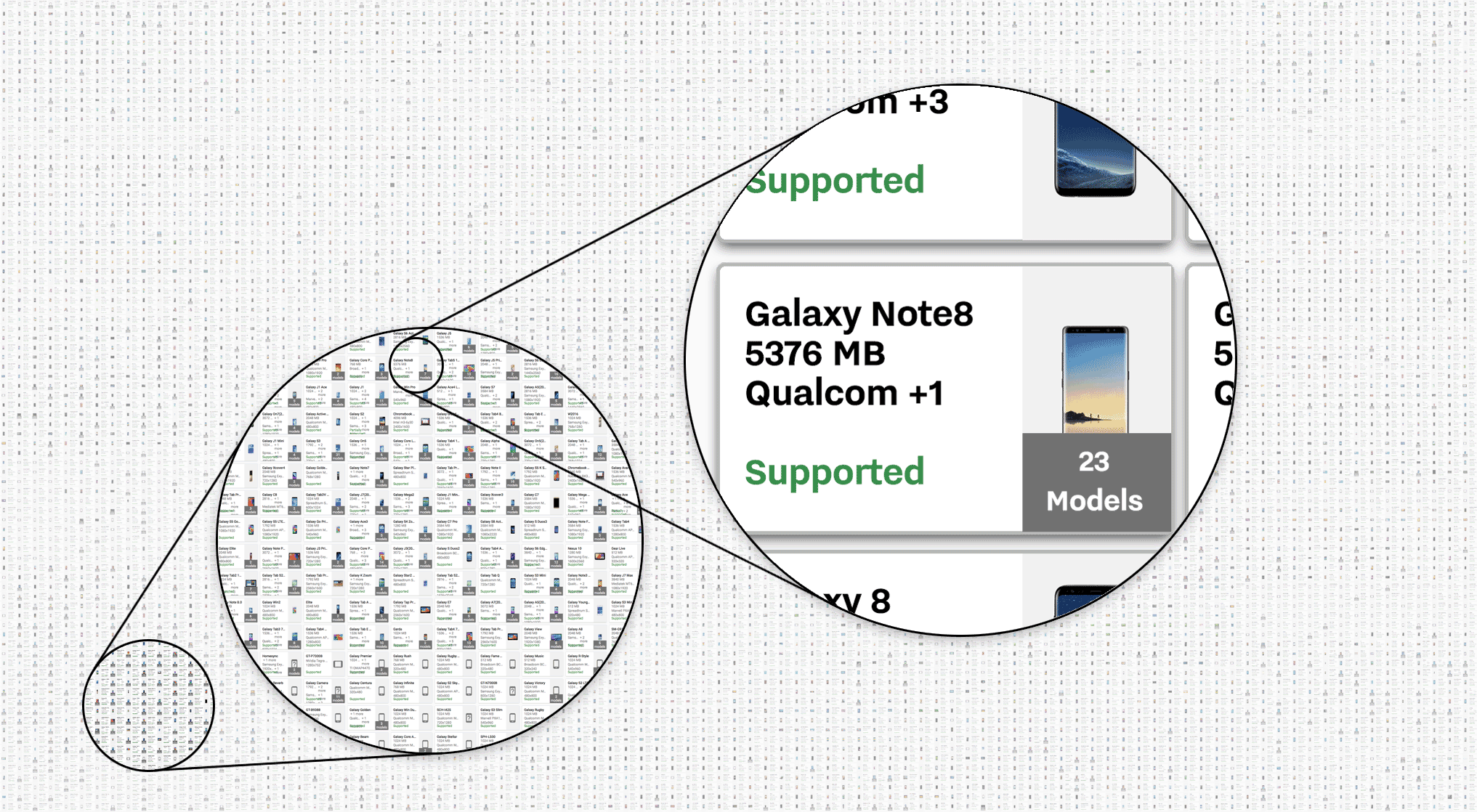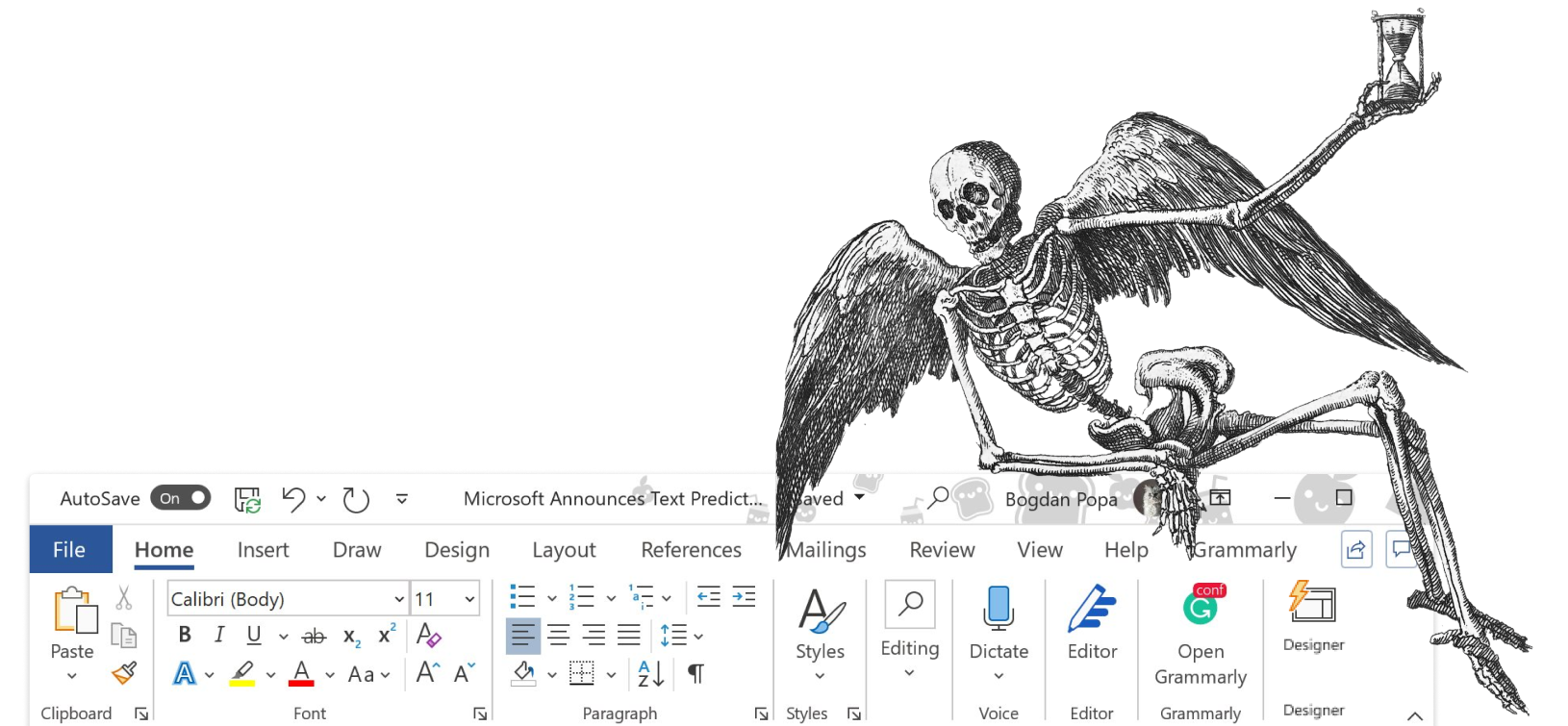After seven years of trying, the most recent struggle with Google proved that we need to change course on our adventure in the Android galaxy.
A couple of months ago, Google changed its API policy and revoked iA Writer’s access to Google Drive on Android. By freezing up Android’s main storage option, our app was frozen in carbonite. It still lived but we couldn’t move forward before resolving it.
In order to allow our users to access their Google Drive on their phones we had to rewrite privacy statements, update documents, and pass a series of security checks, all while facing a barrage of new, ever-shifting requirements.


By September, we thought we had honored our side of the new agreement. But on the very day we expected to get our access back, Google altered the deal.
“I’ve altered the deal. Pray that I don’t alter it any further.”
We were told that read-only access to Google Drive would suit our writing app better than the desired read/write access. That’s right—read-only for a writing app.


“Perhaps you think that you were treated unfairly?”
When we pointed out that this was not what we had, or what our users wanted, Google seemed to alter the deal yet again. In order to get our users full access to their Google Drive on their devices, we now needed to pass a yearly CASA (Cloud Application Security Assessment) audit. This requires hiring a third-party vendor like KPMG.


The cost, including all internal hours, amounts to about one to two months of revenue that we would have to pay to one of Google’s corporate amigos. An indie company handing over a month’s worth of revenue to a “Big Four” firm like KPMG for a pretty much meaningless scan. And, of course, this would be a recurring annual expense. More cash for Google’s partners, while small developers like us foot the bill for Android’s deeply ingrained security shortcomings.1
As we… googled… our new situation, it became clear this wasn’t just our battle—developers everywhere were facing similar bureaucratic entanglements, all designed to benefit Google’s partners while squeezing the life out of smaller companies.
I just finally completed and passed the assessment. Overall it took me about 60-80 hours of my time, and the process itself spanned 3-4 months, with 25-30 back and forth requests of varying complexity. It was awful, and if it’s not streamlined next year, I’ll be dropping this permission from my app and going another route.2
So it’s normal. Seems like we had to bite the bullet. After all, we have been doing this for seven years. We have tens of thousands of users. We invested hundreds of thousands to make this work, and so it looks like…
“We shall double our efforts!”
This battle to give our customers access to their Google Drive is only the latest in a series of clashes we’ve had with the empire. Developing on Android is a daily worsening struggle with red tape, inconsistent device performance, app store search performance gaming3, and rampant piracy.4
Every time we think we’ve overcome one hurdle, another two pop up. It’s an exhausting process that saps our resources, delays updates, and damages our reputation. Meanwhile, the negative reviews keep piling up for problems that are out of our control. That’s not the only problem.
There are certain devices that cause trouble. To fix the bugs you need to buy the device. Customers demand that. And often we did. Below you can see the 12,000 devices that were using iA Writer in 2017:

Developing for Android you navigate an asteroid field. Bugs surface across thousands of device types, Android versions, and flavors—One UI, MIUI, OxygenOS, Pixel Experience, you name it.
And before anyone says this is the price of an “open” OS—well, we don’t have this problem on Windows.5
“Put him in!”
We could just comply—we could pay KPMG, surrender more of our revenue, and dig ourselves deeper into the red. And then accept the next forced change. And the next one. We could try to write our own framework for payment to avoid piracy. But why would we when no one wants to pay for it? And then what? Where does it end? Hiring someone to game our app reviews?
As long as we sell to Android end consumers, the economics of continuing development on Android is an ever-tightening Force Choke. Bit by bit the control over our app’s functionality, quality, or finances are being taken away from us. If we continue down the current path we damage our relationship with users, taint our reputation, lose money, nerves, and time.
So, as of today, we’re not just accepting our frozen-in-carbonite fate. We’re embracing it. We’re going to take the app offline. We know this decision will disappoint our loyal Android users, and we share your frustration. After seven years of continuous investment, this is way more painful for us than it is for any of you.
It’s important to understand why many developers choose not to engage with the Empire. You can’t win that battle. They do as they please. Existing users will keep their access, and we’ll push critical updates when necessary—if the empire allows it. But new features are off the table for now. Support will be friendly as always, but we have to be pragmatic.
“What if he doesn’t survive? He’s worth a lot to me!”
iA Writer for Android might return in the future—perhaps in a different chapter of this saga, where it can develop in a more controlled environment.
We are working towards a setup where organizations can pay us directly for all our software.6 In a B2B setup, the Android hardware ecosystem may be economical and manageable, and then we can go back to sponsoring single-license users and their unruly pirate friends. Until that day comes, iA Writer for Android will remain frozen in carbonite, waiting for the right time to reawaken.
In the meantime, we’re focusing on projects that drive our business forward: finalizing a major Windows 11 update, enhancing iA Writer for Mac, iOS, and iPadOS, preparing to launch web sharing for iA Presenter, and releasing Presenter for iOS/iPadOS.
-
And then who guarantees us that after this there is not yet another requirement? It felt like a scam. ↩
-
Reddit user ‘vintagemako’ in a thread titled “Has anyone done the Gmail CASA Tier 2 assessment?”. The online literature detailing the frustration with CASA and its changing requirements offers an interesting read. ↩
-
With an overall ranking of 4.7 you can still end up with ten scroll lengths of of one-star-reviews. How? Everyone, user or not, can vote on app reviews. If you wanted to hurt your competitor, with a team of 10 friends you can easily game your competitor’s overall great app reviews into a living hell of hate and despair. Inversely, you can vote up your own positive comments if that’s how you want to operate. Google doesn’t care. ↩
-
Nine in ten regular long-term users (not first-time users, long-term users) do not pay for our app. And that’s just the users we can see. Practically all major Android apps are available in a pirated version. Google itself makes it easy to pirate apps without downloading anything. You can use any app with a trial without ever paying. To use an app for free, indefinitely, just delete and reinstall it, and your testing period resets. And in China… Long story short, that’s how you can end up with 50,000 users and only 1,000 paying you. And before you know it, people who use pirated apps with irreproducible bugs hit your support channel and gang up on upvoting bad app store reviews. ↩
-
Each flavor of Android brings its own quirks. Even if we buy the troublemaking devices, the issue often turns out to be a problem with a specific subflavor or software version that’s impossible to reproduce. It’s like playing Whack-a-Mole, and the moles just keep multiplying. ↩
-
Google’s chaos makes Apple’s control seem reasonable. I can already hear John and Seb typing: “…and this is why the EU shouldn’t turn Apple into Google.” Let’s be real—Google Play and the App Store don’t compete. They collaborate. Same rates, same model, same unchecked power. Call it a monopoly, call it a duopoly. They share the mobile market without too much crossfire: Apple takes those who can or want to pay, Google takes the rest. Google Play is not an alternative to the App Store. It’s not “Go there if you don’t like Apple.” Google Play is a very lazy, very sloppy carbon copy of the App Store. Their collaboration is not metaphorical. It goes beyond the way their shared control over the mobile app market. Apple collects privacy points, then cashes them in by making Google the default search on iPhone. A lot of that privacy-free Search money flows right back from Google to Apple. 20 Billion USD in 2022. In 2020, “Google’s payments to Apple constituted 17.5% of the iPhone maker’s operating income.” (Bloomberg) And no one really cares, as long as it’s convenient. But as a developer in Europe, we’re glad that the EU does. ↩







